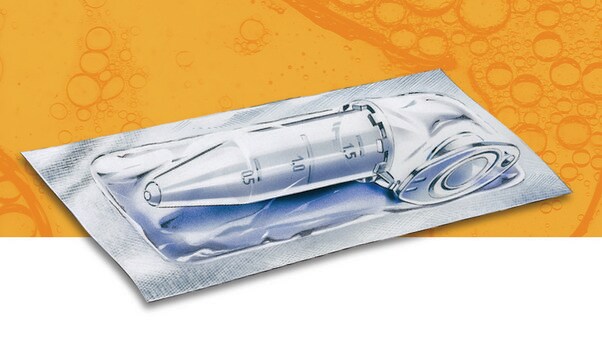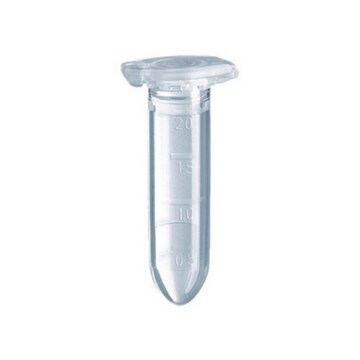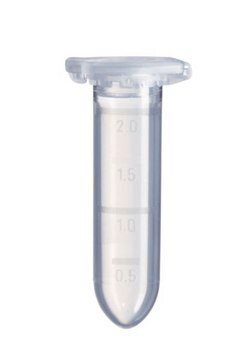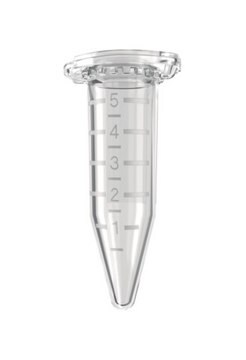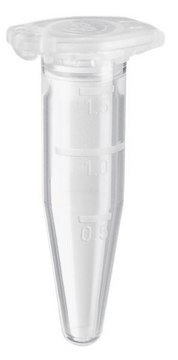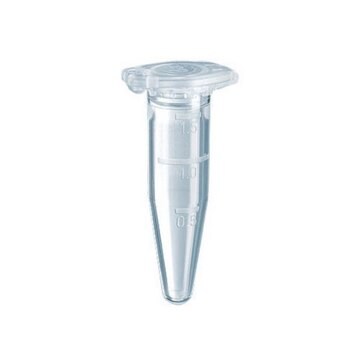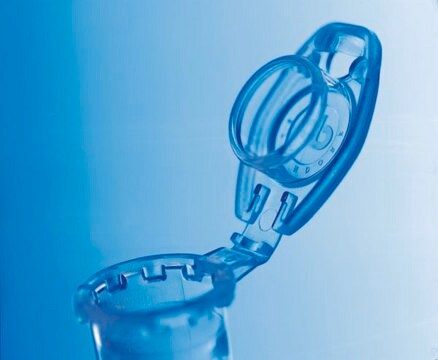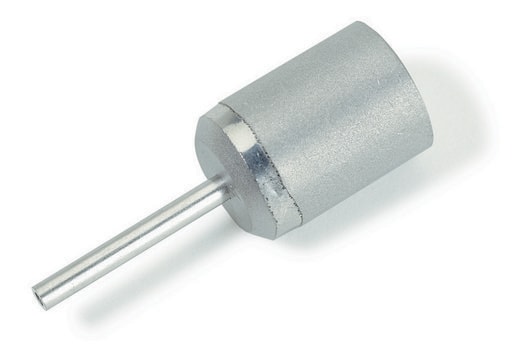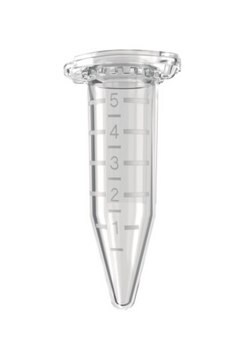EP0030121597
Eppendorf® Safe-Lock micro test tubes, Biopur®
capacity 2.0 mL, pack of 100 ea
Synonim(y):
probówki do mikrowirówek, probówki eppendorf, probówki z mikrofugą
About This Item
Polecane produkty
Materiały
cap (plug seal)
colorless cap
colorless tube
polypropylene cap
polypropylene tube
round bottom
sterylność
sterile
Właściwości
graduations
neck thread Push fit
opakowanie
pack of 100 ea
producent / nazwa handlowa
Eppendorf® 0030121597
pojemność
2.0 mL
Szukasz podobnych produktów? Odwiedź Przewodnik dotyczący porównywania produktów
Cechy i korzyści
- Zawiasowe wieczko Eppendorf Safe-Lock zapobiega niezamierzonemu otwarciu wieczka podczas inkubacji i przechowywania.
- Polipropylen zapewnia wysoką odporność na chemikalia, naprężenia mechaniczne i ekstremalne temperatury.
- Wyprodukowany bez użycia środków poślizgowych, plastyfikatorów i biocydów - substancji, które, jak wykazano, przedostają się z plastikowych materiałów eksploatacyjnych do próbki i negatywnie wpływają na wyniki testów biologicznych, 10339: Wyjątkowa stabilność wirowania do 30 000 × g zapobiega utracie próbki w wyniku pęknięcia probówki i zapewnia dodatkowe bezpieczeństwo podczas pracy z niebezpiecznymi próbkami Precyzyjne uszczelnienie pokrywy zapewnia minimalne tempo parowania podczas długotrwałego przechowywania.
- Duża matowa pokrywa i boczna powierzchnia ułatwiająca etykietowanie.
- Gwarantowana funkcjonalność w temperaturach od -86 °C do 100 °C.
- Możliwość autoklawowania po otwarciu (121 °C, 20 min).
- Dostępne z materiałem Eppendorf Protein i DNA LoBind dla maksymalnego odzysku cennych próbek.
Korzystając z systemu Eppendorf 30 000 × g składającego się z probówek Safe-Lock i wirówki 5430 R z wysokoobrotowym rotorem, zbadano wpływ względnej siły odśrodkowej (rcf), czasu wirowania i ilości izopropanolu na szybkość odzyskiwania plazmidowego DNA z wytrącania alkoholu. Wszystkie trzy czynniki odgrywają pewną rolę, przy czym rcf ma największy wpływ. Wirując probówki Eppendorf Safe-Lock Tubes z prędkością 30 000 × g, można było odzyskać prawie 90% DNA z 5-minutowego wirowania.
Informacje prawne
Wybierz jedną z najnowszych wersji:
Certyfikaty analizy (CoA)
It looks like we've run into a problem, but you can still download Certificates of Analysis from our Dokumenty section.
Proszę o kontakt, jeśli potrzebna jest pomoc Obsługa Klienta
Masz już ten produkt?
Dokumenty związane z niedawno zakupionymi produktami zostały zamieszczone w Bibliotece dokumentów.
Nasz zespół naukowców ma doświadczenie we wszystkich obszarach badań, w tym w naukach przyrodniczych, materiałoznawstwie, syntezie chemicznej, chromatografii, analityce i wielu innych dziedzinach.
Skontaktuj się z zespołem ds. pomocy technicznej